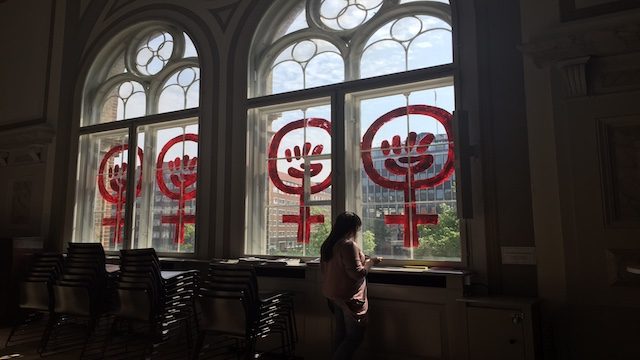SUMMARY
This is AI generated summarization, which may have errors. For context, always refer to the full article.

COPENHAGEN, Denmark – Denmark is ranked as one of the most gender equal countries in the world. But violence against women still exists.
A study done by the European Union Agency for Fundamental Rights showed that Denmark has one of the highest rates of domestic violence among EU countries at 52%, followed by Finland at 47%, and Sweden at 46%.
There are an estimated 33,000 women who experience some form of violence in Denmark. Of that number, about 4,000 (more than 10%) are immigrant women.
Several factors make immigrant women especially vulnerable when it comes to violence.
Language is a common barrier. Migrant women may not know what rights and protections are available to them because laws are written mostly in Danish. Additionally, they would not have the support system of family and friends that they would normally have in their home country. Some women, whose residence permit is hinged on their marriage to a Danish citizen, resist seeking help.
Since the start of this year, Therese Christensen, a consultant for the Danner Women’s Crisis Center in Copenhagen, has assisted 27 Filipino women seeking counseling or emergency shelter. (Read more about the Danner Women’s Crisis Center here.)
“That’s about 4 women every month,” said Christensen. Or about one woman every week.
On September 2 and 3, award-winning actor and One Billion Rising global director Monique Wilson, researcher Erliza Pedersen, Christensen, and this writer spoke at a Women’s Forum for the Filipino migrant women held in Copenhagen and Aalborg.
Through intimate sharing of personal experiences, we hoped to break the silence on the taboo and shame that surround domestic violence.
In this interview with Wilson and Christensen, we reflect on how the stereotypes, misplaced cultural values like religion and economics, make migrant women especially vulnerable to violence and how communities can work towards solutions. – Rappler.com
This event was organized by the Danner Women’s Crisis Center, Kirkernes Integrations Tjeneste (KIT) and funded by the Danish Ministry of Social Affairs and the Interior.
Add a comment
How does this make you feel?
There are no comments yet. Add your comment to start the conversation.